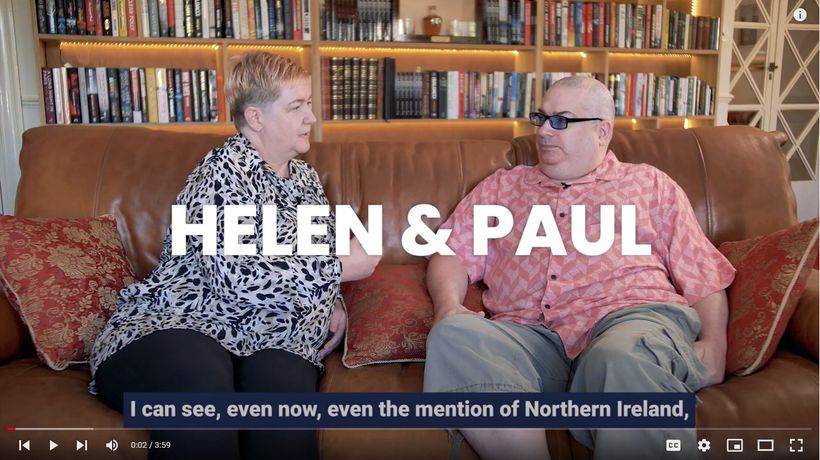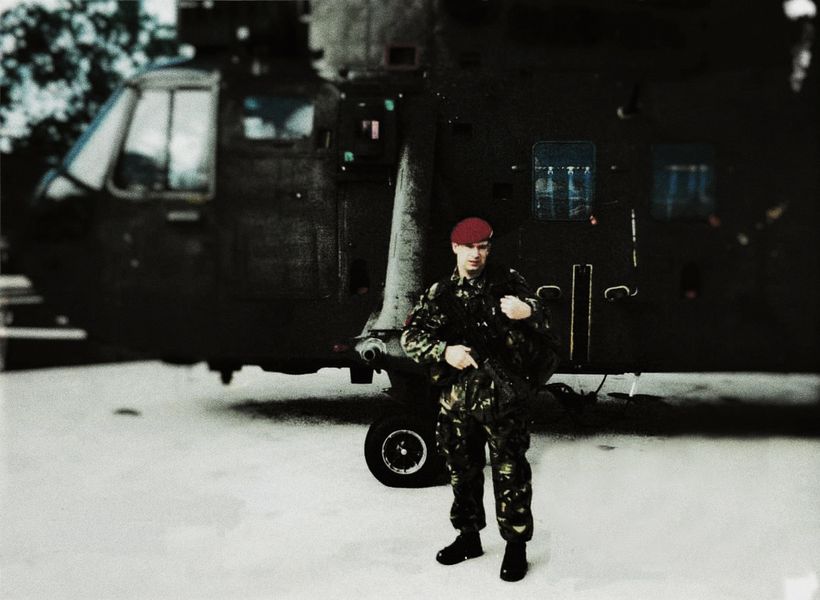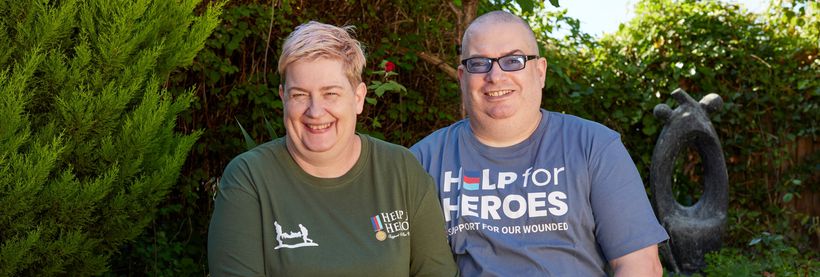Updated on
Paul signed up at seventeen – determined to lead a life filled with adventure. Serving with the Military Police, he found the excitement he was searching for. But his experiences in Northern Ireland during the Troubles have had a lasting effect on not just his mental health, but his wife’s too.
“I was in the military police for thirteen years altogether. When I was posted to London I looked after many high-profile people, including her majesty The Queen and then Prime Minister, John Major.
“I was posted to South Armagh in Northern Ireland in 1997, during the end of the Troubles; The Good Friday Agreement had been signed by then, but there was still a job to be done. We were there to keep a normal life going.
“Me and my wife Helen were living on the military base in Portadown. While we were there, the town was blown up.
“It was exciting but dangerous work. We’d be dropped in by helicopter, or out in a boat with the Marines. The first time I was on the streets I thought I was going to die; that I’d step on something, or someone would shoot me. I was constantly on edge, always looking over my shoulder.
"One night, as we were going around the lanes in a Land Rover, we came under attack from petrol bombs and gunfire. It was like being in an action movie. I would have lost my life that night if a policeman hadn’t told me to move just as the bombs rained down.
“The smell of petrol alone can cause me to have flashbacks. They leave me shaking. Maybe at the time the adrenaline blocked it out. You don’t think that many years down the line this will come back and haunt you.
“My time in Ireland ended in 2000. We had a young family, and decided it was time for me to leave the service. We moved to Cardiff. I started working as a bus driver, but nothing lived up to my time in Service. I could never find the challenges or the excitement that the Army gave me. I qualified as an HGV driver, but my PTSD was gradually starting to take over.
“I didn’t see myself as having poor mental health at the time. To me I was normal. It was my wife, Helen, who noticed it and said something wasn’t right.
“In 2013, everything came to a head, and I physically hurt Helen. Being arrested was a big wake-up call for me, and for our future really. I knew something was deeply wrong. The next day, we picked up the phone and asked a doctor for help.
“We moved and for a while were happy living by the sea; but I began having suicidal thoughts. I don’t think I wanted to commit suicide but as the years and months go by and every day is like Groundhog Day. You think - what’s the point?
“Helen noticed something was deeply wrong. She started looking after my medications and would lock the outside door.
“I live in a bubble now. I don’t leave the house unless I have an appointment or to see a doctor; if it’s too busy, or crowded it reminds me of Northern Ireland and the riots. It brings back those emotions, those memories.
Helen has struggled with dark thoughts too. The stress of looking after me and the family has taken a toll on her mental health.
“A friend recommended Help for Heroes to her. Getting in touch with them is the best thing we’ve ever done. They’ve never turned their back on us. Thanks to support from military charities, we’ve been able to move to a quiet and safe environment. That’s really helped my mental health.
“I know I have to work on living with the painful memories: There’s no sure way of getting rid of them. Me and Helen get mental health support from Help for Heroes’ Hidden Wounds team; I’m on medication to help with my PTSD; and I’m working on my drinking.
"Without Help for Heroes we’d have probably divorced; but their help has kept us together and made us stronger.
“The support we’ve received has been a lifeline for us; and I would urge anyone who has suicidal thoughts to reach out.
"It doesn’t rain every day the sun always comes out. Life does go on; the next day does get better. Get help or support. Or speak to a friend.”





